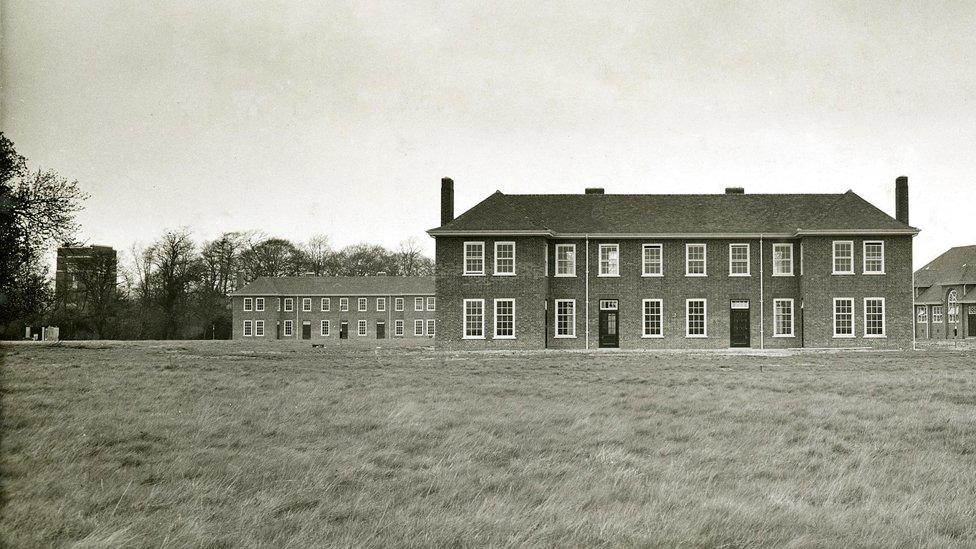Aston Hall survivor: 'If I can survive and change my life, anyone can'
- Published

Stephen Smith is a musician and artist designing book and album covers
A man who spent his childhood locked in a cellar, only to then be abused when he was taken into care, has said it took years to get used to the real world.
Stephen Smith was beaten by his parents and kept hidden away until he was 13, when he found himself at the notorious mental health hospital Aston Hall in Derbyshire.
The 59-year-old musician and artist said this "strange childhood" led to him struggling to cope as he grew older.
The harrowing details have now been put into a book which he hopes will encourage more male victims to speak.
Mr Smith grew up in Sherwood, Nottingham, and from birth, was only allowed out of the cold, dark cellar for hospital trips for a fractured skull or broken bones inflicted by his father.
One day, after his back was split open with a spade, concerned medical staff raised the alarm and he was rescued.
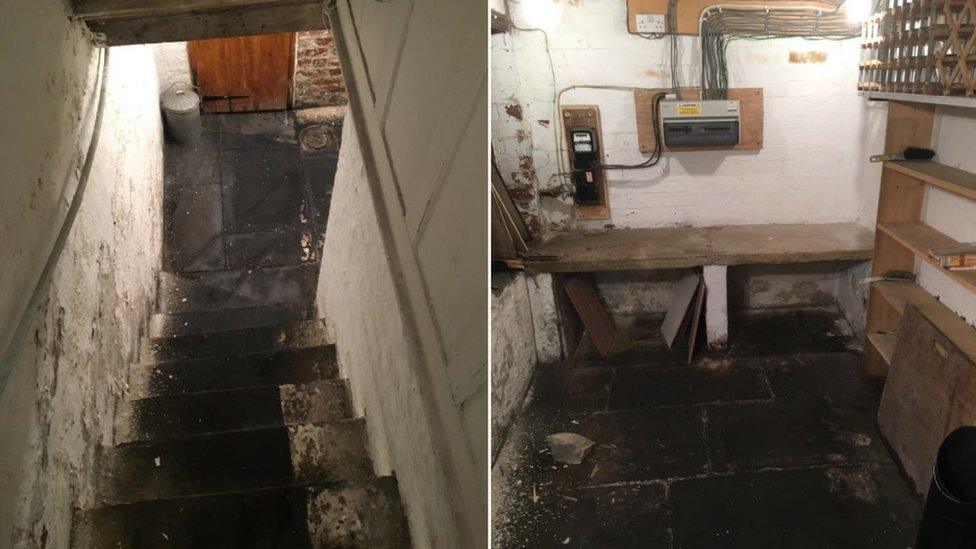
Mr Smith was locked in a cellar similar to this for 13 years with a makeshift shelf as his bed
Mr Smith said he has never had answers on why his parents kept him hidden throughout his childhood.
"I never saw them after I was taken away and they died while I was in care," he said.
"I couldn't imagine my life being any worse and then next thing I found myself at Aston Hall. It's like I was out of the fire and then thrown back in again."
'Scary as hell'
While in care, Mr Smith was taken to Aston Hall where he underwent medical drug experiments, beatings and molestation from Dr Kenneth Milner.
"Back in the 1970s the police, social services, nobody wanted to know about what was happening," he recalled.
"They thought we were lying. We were told to go away and that it wasn't true.
"I had the 'treatment' on several occasions and I woke up with my arms tied up, my knees tied. You were unconscious when he gave you the drug and he was obviously hitting me with a belt.
"He was an evil and twisted individual... and we were his property to do with us whatever he wanted. It was scary as hell."
After that he was taken to St William's Catholic School in Market Weighton, East Yorkshire, where, along with other pupils, he suffered further physical and emotional abuse.
Mr Smith and hundreds of other victims have now received compensation payouts from the government for the treatment they received.
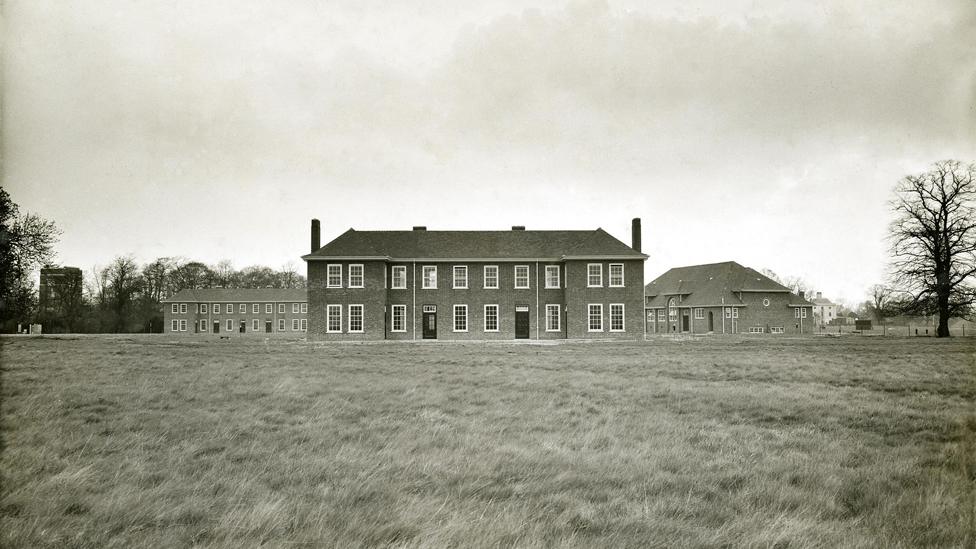
Many buildings at Aston Hall, including those pictured, have been demolished
"We're still waiting for an apology," he added. "No-one's taken responsibility for what Milner did and he's long dead."
Mr Smith, now a father-of-four, said after leaving care he struggled with the outside world.
He drank heavily, took drugs, would find himself getting into fights and suffered recurring nightmares.
"I hadn't had the same upbringing as everyone else and it was confusing," he said.
"I had never seen the real world and it took some getting used to.
"I was screwed up. I was drinking and fighting for a few years and it took me a long time to sort myself out."
'Not letting them win'
The birth of his first son, Simon, in 1991 forced Mr Smith to turn his life around.
He now lives on a narrow boat in Langley Mill, Derbyshire, with wife Gail, and said writing his book The Boy in the Cellar helped with his therapy.
"When I saw a psychiatrist they told me I probably shouldn't tell the whole story because they didn't think it would do me any good to remember the past," he said.
"Since I have started telling everyone about it, and told my kids, in some strange way it has been helpful."
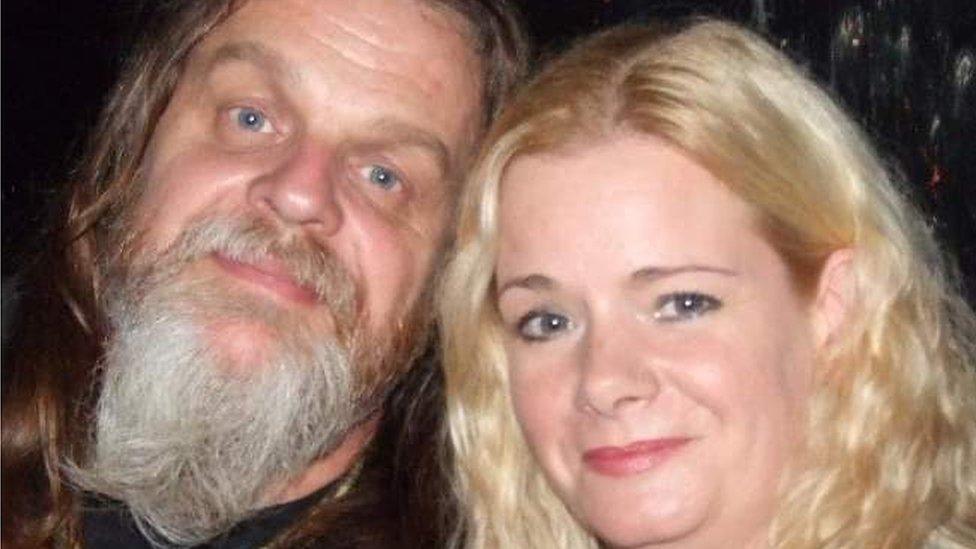
Stephen Smith has put the details of his past into a new book
He hopes the book will help other survivors of emotional, physical and sexual abuse to come forward.
"If I can survive stuff like that without a being a mess and change my life then anyone can do it," he added.
"I'm not going to spend my life being a depressed lunatic just because of what happened to me. Otherwise the people that hurt you have won.
"If they knew they had screwed up my life it would be another victory for them. But I'm not willing to let them win."

Follow BBC East Midlands on Facebook, external, Twitter, external, or Instagram, external. Send your story ideas to eastmidsnews@bbc.co.uk, external
- Published15 August 2019
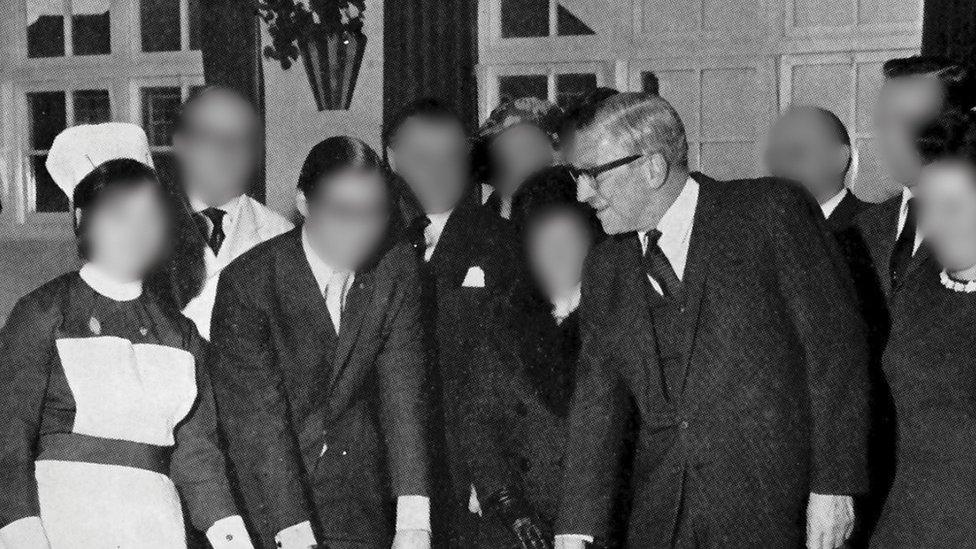
- Published9 August 2019

- Published23 April 2018
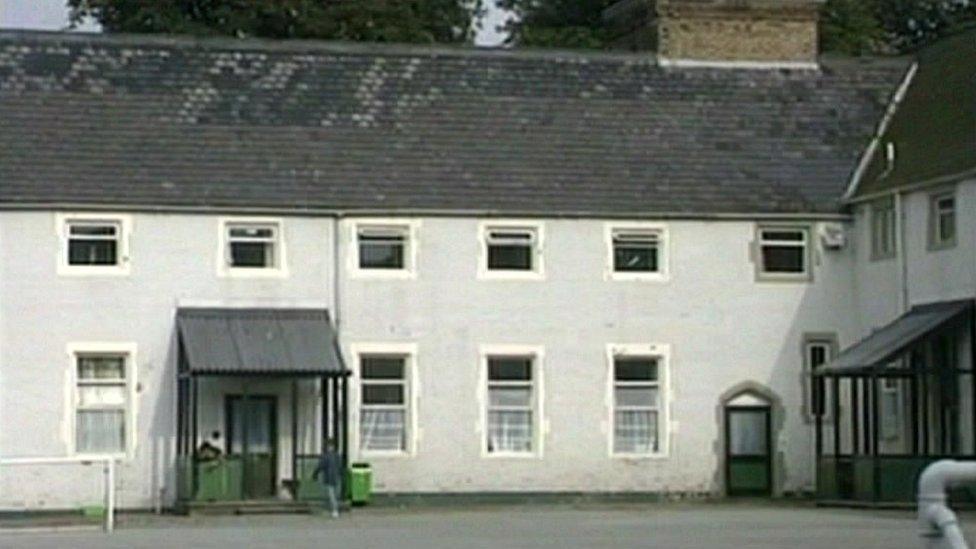
- Published19 July 2016
